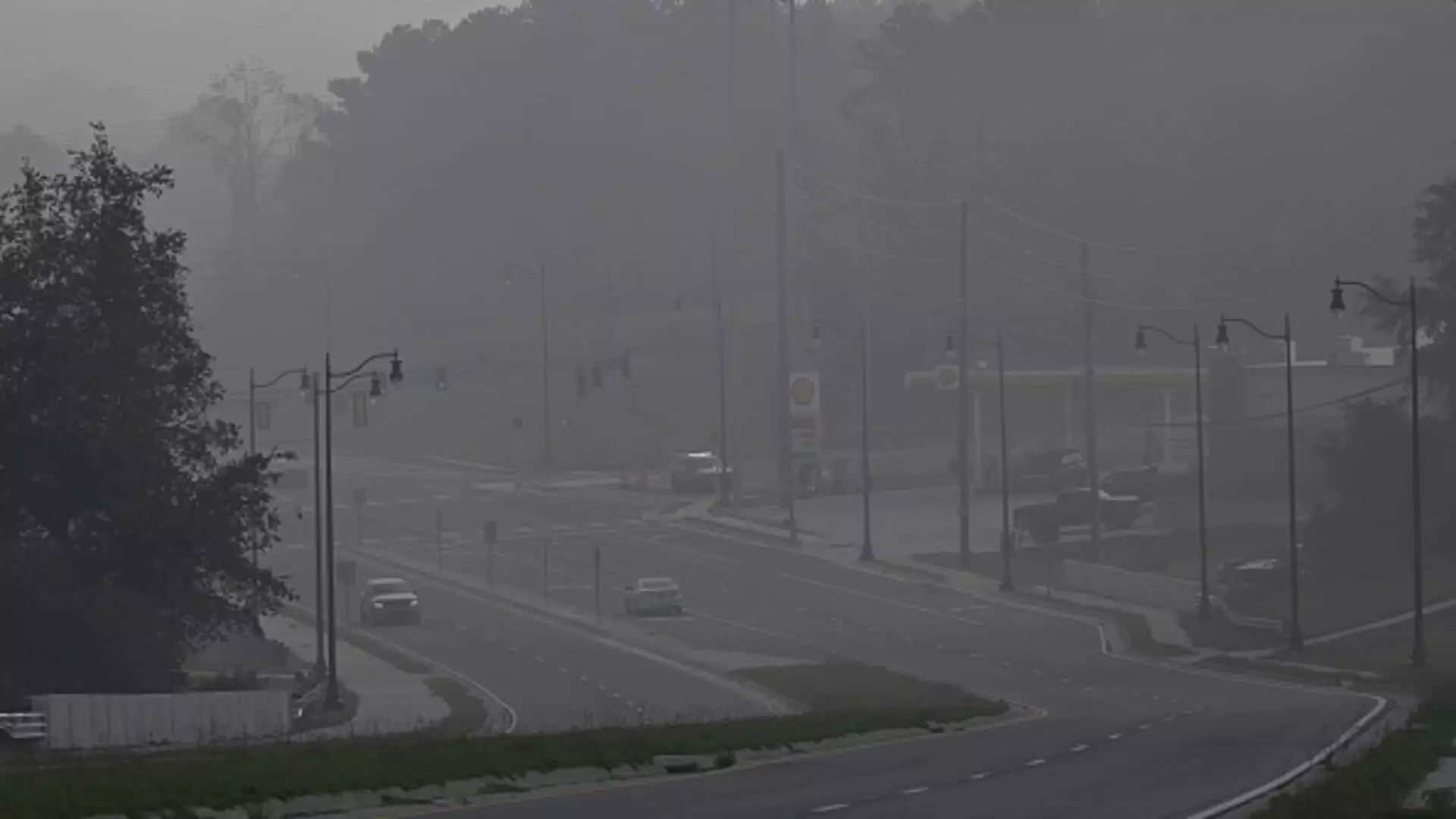The residents of Atlanta find themselves grappling with an alarming environmental scenario following a fire at the BioLab facility in Conyers, Georgia. Initial reports confirmed that the incident, which occurred early Sunday morning, has unleashed elevated levels of chlorine gas into the atmosphere—a situation that has understandably raised concerns regarding public safety and health. In response, both local and state officials issued urgent advisories to the community, including shelter-in-place instructions and evacuation orders for those in proximity to the facility.
Safety protocols have been activated in reaction to the hazardous air quality findings released by the Georgia Emergency Management and Homeland Security Agency. This situation poses not just an immediate health risk but also casts a shadow over potential long-term implications for the residents who may be chronically exposed to chemical irritants.
Air samples taken from the vicinity of the BioLab plant have shown chlorine levels that were alarmingly above recommended action levels. Despite efforts by the BioLab personnel to neutralize the ongoing chemical release, ongoing monitoring indicates that sporadic increases in chlorine concentrations are likely. The prospect of wind patterns shifting poses further risk, suggesting that contaminants could extend the physical effects of the fire far beyond their original epicenter.
This interplay between chemical emissions and meteorological conditions creates a cocktail of health hazards. Elevated chlorine levels can irritate respiratory pathways and even provoke severe reactions in individuals with preexisting health conditions, such as asthma or heart issues. Advisories from agencies recommend limiting outdoor exposure, especially for vulnerable populations, thereby putting added strain on daily life and routines.
The reaction from the Rockdale County community has been one of disbelief and frustration. Social media channels erupted with posts from local residents voicing their distress about the situation. Complaints have included symptoms prevalent in the nearby population, such as respiratory difficulties and other ailments related to exposure to the chemical haze. This growing concern indicates a palpable fear among local residents, most of whom felt blindsided by the unfolding events.
Community members have taken to expressing their displeasure not just with the chemical exposure but also with the handling of communication from local authorities. Many citizens, including those inhabiting areas designated for evacuation, have criticized the seemingly contradictory messages emanating from emergency management officials. The constant back-and-forth regarding air safety has intensified the anxiety felt by residents, causing many to question the efficacy and transparency of the information being provided.
In the wake of this disaster, there has been a surge in grassroots activism aimed at reevaluating the presence of potentially hazardous facilities like BioLab within urban and suburban contexts. As calls for action grow louder, discussions are brewing about holding the facility accountable for the environmental ramifications of its operations. Residents, including those directly affected, have initiated petitions demanding not just explanations, but also concrete actions regarding the plant’s future in Rockdale County.
This local activism dovetails with broader conversations about industrial safety regulations and the obligations of companies to their communities. No resident should have to feel that their health and safety are under constant threat due to chemical exposure, and this incident is a flashpoint for a larger movement aimed at systemic change.
As the situation evolves, officials will need to prioritize not just immediate response mechanisms but also long-term strategies for enhancing community resilience against future incidents. This includes re-examining facility regulations, improving emergency communication channels, and fostering more proactive engagement with the community.
The fallout from the BioLab fire serves as a sobering reminder of the potential hazards that industrial operations can impose on residential areas. As Atlanta’s residents navigate the haze of chlorine-laden air, they face not only the immediate risks of exposure but also a pressing need for reform in safety procedures and corporate accountability. It is imperative that this incident be a catalyst for meaningful change, ensuring that public safety remains paramount in the dialogues surrounding industrial operations in Georgia and beyond.


Leave a Reply